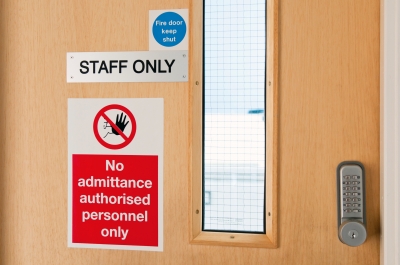Facing an operation after your weight loss surgery

It’s also important to note that bariatric surgeons specialize in performing most general and laparoscopic operations (unrelated to the weight loss surgery) in the torso region of the body.
I recently had a case where my bariatric patient had his gallbladder removed by a general surgeon who was not a bariatric surgeon. Why? He didn’t realize that I also perform gallbladder surgery at least 2-3 times per week. Unfortunately, this patient experienced post-op complications which I was able to address successfully.
This incident compelled me to ask other post-op patients what they would do if they needed an operation in the GI region.
“Really? I thought you only performed weight loss surgery,” many of my patients remarked. When one patient told me she would definitely ask me for a referral, I knew I needed to compose an article about this subject.
If you are facing an operation in the abdominal region, contact your metabolic and bariatric surgeon first, so long as you satisfied with their quality of care. They have been specially trained to successfully treat most medical issues safely and successfully. In addition, they are well versed in your new anatomy and how best to address the medical situation you are facing and oversee your post-op care.
Photo courtesy of FreeDigitalPhotos.net Staff Only Signs At Laboratory” by artur84
Good to know. Thanks for sharing!
I read that ER's & surgeons must know because they have to intubate differently. Don't know for sure. Also read that post op patients are wearing medical alert bracelets. Looked at them but non say anything specific. Anyone know? I need to remember to ask my Dr. I try to take a list of questions
My WL Surgeon in addition to the sleeve did my hernia repair (which came back 6 months later but he told me it might) and removed my gallbladder all at the same time. He will be doing my hernia repair again after I have lost some more weight. I am the one that is wanting to lose more weight before surgery as it has only been 7 months ago that he did those surgeries.
As for the medical alert bracelets I was told to get one but have not done so yet. Some like to keep a card in their wallets but you never know if in an accident if they will find your wallet. Or maybe you are out bikng like I do and don't have your wallet with you. This site did have several postings about that over the years and did list some sites that had bracelets that were very nice looking and they were not the standard medical alert. I suppose I should get one with Gastric Sleeve VSG, No Blind NG Tubes, No NSAIDs
I have had 4 major surgeries since my gastric bypass. None of them to the stomach area but I did learn there is NO problem with intubating us.
The biggest thing to be careful about is if you have to have an EDG (camera down your throat into your stomach). The doctor needs to know you have had a Bariatric surgery and most if not all take a very thorough history.
I had one of those recently too and because he was well informed, he knew how to handle my case.
In the case of an emergency situation, you should have something that communicates this. I don't use a Bracelet but most IPhones now have the medial alert and most emergency teams can access. Whether or not they do is the bigger question. I hope so because that is where I have my whole history and medications lists.
They don't need a special code to get to it either.







CowgirlJane 14,260
Posted
This is a good article. Due to a family history of polyps I need to have a colonoscopy every 3 years. After my sleeve, I was scared of doing the prep stuff so i called my surgeon's office to ask about it. I found out, low and beyold, they do GI surgery and they do colonoscopies! I had so much peace of mind going back to my trusted Bariatric surgical practice for that!
Share this comment
Link to comment
Share on other sites